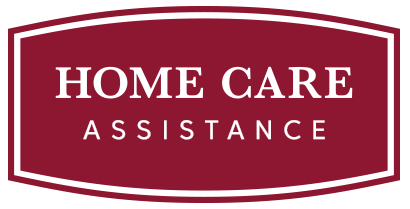5 Indicators of Stress in Aging Adults

Everyone wants to believe his or her elderly loved one is enjoying a stress-free retirement. However, stressful life events commonly occur throughout the senior years, and it’s important to recognize these warning signs that stress is affecting your loved one’s wellbeing.
1. A New Health Condition
Too much stress can increase adrenaline levels in the body, putting your loved one at higher risk for a heart attack or stroke, two conditions that account for a large percentage of hospital readmissions and deaths among older adults. Seniors who experience cardiovascular problems are at higher risk for developing other health conditions, such as diabetes. It’s also important to note a new health diagnosis itself can often be stressful for seniors.
A senior who is suddenly diagnosed with a health condition like high blood pressure may be experiencing a physical response to stress. When this happens, it’s important to talk to your loved one about what may be occurring in his or her life and find ways to help him or her relax. Look for ways to boost your loved one’s health, including socialization, physical activity, and healthy lifestyle habits.
2. Unexplained Weight Gain or Loss
Stress can sometimes lead to depression and affect a senior’s appetite. This is especially true for seniors who have recently lost spouses or who eat alone. As a family, make plans to share meals with your loved one to ensure he or she is eating well even during stressful times.
Stress is one of many components that can contribute to decreased mental and physical health in seniors. Not every senior has the same care needs, which means they don’t all need the same type of homecare services. Dallas families can rely on Home Care Assistance to provide individualized care plans to meet your elderly loved one’s unique care needs. Our holistic Balanced Care Method was designed to help seniors focus on healthy lifestyle habits such as eating nutritious foods, exercising regularly, and maintaining strong social ties, and our Cognitive Therapeutics Method offers mentally stimulating activities hat can stave off cognitive decline and delay the onset of dementia.
3. Mood Swings
Chronic worrying can alter your loved one’s behavior. When this happens, you may find your loved one happy one moment and upset the next when the problems return to his or her mind. This can occur due to financial, health, and social worries. For this reason, it’s important to develop a good rapport with your loved one so he or she will share these concerns before they begin to affect his or her behavior.
4. Self-Isolation
We’ve all been in situations where we just didn’t want to talk about our problems. However, some seniors isolate themselves from family and friends when stress reaches uncomfortable levels. Your loved one may try to self-isolate after a recent loss that affects his or her self-confidence, such as a change in physical abilities. Make sure to surround your loved one with support during this time, and arrange for a caregiver to visit frequently so your parent never experiences the ill effects of being alone for too long.
For families living in Dallas, respite care can be a wonderful solution when their aging loved ones need companionship and socialization a few hours a week or just need minor assistance with daily household tasks. At Home Care Assistance, we thrive on helping seniors maintain their independence while living in the comfort of home.
5. Frequent Requests for Help
Some seniors have no problem reaching out during times of stress. However, they may not mention there are emotional reasons behind their requests. For example, a senior who constantly asks you to come over and fix things or help with household tasks may be stressed about the fear of falling. Make arrangements for home care so your loved one doesn’t have to fear being hurt while alone.
Stress can result in mental, emotional, and physical challenges for aging adults, but seniors don’t have to manage them alone. In Dallas, elderly care agencies can be a great boon to seniors. With the help of the caregivers at Home Care Assistance, your aging loved one can lead a happier and healthier life. We offer a revolutionary program called the Balanced Care Method, which encourages seniors to eat nutritious foods, exercise and socialize regularly, and focus on other lifestyle factors that increase life expectancy. To learn more about our reliable, compassionate in-home care services, contact us at [hca_phone] today

